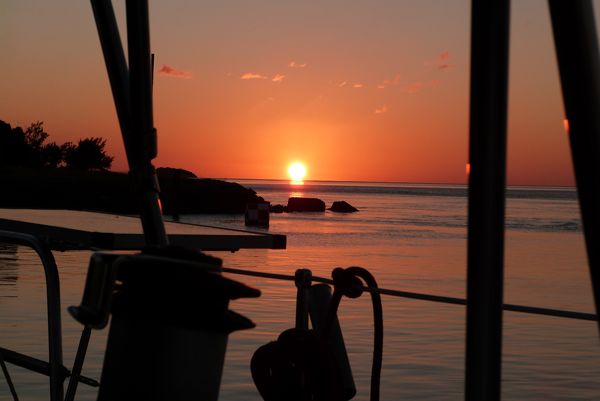Enroute to Africa - Cocos Keeling to Rodriques

Peregrina's Journey
Peter and Margie Benziger
Sun 6 Oct 2013 12:32
Enroute to
Africa - Cocos Keeling to Rodriques
Peregrina
departed the Australian island of Cocos Keeling on September 17th for a 2000
mile passage to the island of Rodriques. On board with Margie and Peter were our good
friends, Bob and Vicky Reynard who left their Taswell 43, Foxy Lady, in
Guatemala to join us for the crossing.
The morning
we departed, we had a good luck sign from the heavens with a wonderful rainbow
off the stern.
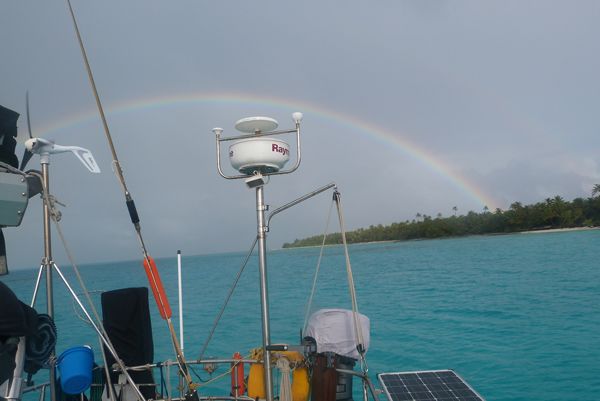
The route started
at a Latitude of 12 degrees south of the equator and ended up at 19 degrees
south of the equator. This was furthest
south that Peregrina had traveled since leaving Miami. For the past four years, we have been in
T-shirts and shorts and now, some nights during the passage, we had to delve
into the storage bins to look for long sleeve sweat shirts and long pants. Remember, that while it is summer in the
northern hemisphere, it is winter here in the southern hemisphere.
The predominant
winds are from the southeast in the southern part of the Indian Ocean. This region is known for “tough sailing” due
to the larger waves and confused seas. The seas hit the port side, aft quarter
of Peregrina with large slams which moved the stern sideways. The result was
that it was hard to hold a steady course.
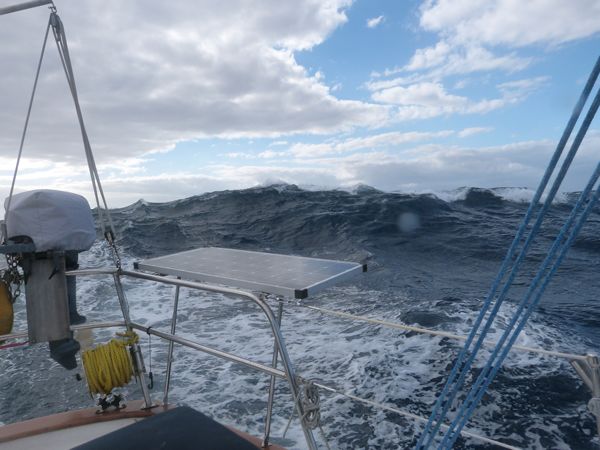
The waves would
occasional rise and smack the topside hull of Peregrina. On one occasion, I was below with Margie when
a wave struck right on the, supposedly, waterproof metal baffle protecting the
exhaust fan. The force of the wave sent a solid stream of cold sea water
through the metal baffle, through the exhaust fan over the stove, clear across
14 feet of the interior cabin right onto our chart table and computer! Luckily, the computer was OK but what a
mess!!!
During the
thirteen night passage, we experienced all types of weather: high winds, with
gusts up to 50 knots, no wind, clear skies, cloudy skies, rain squalls, sunny
skies, rolly waves, monstrous breaking waves, small waves to dead calm seas. Life on deck during heavy weather and night
watches consisted of putting on our PDF (Personal flotation devices) and using
our harness to attach our bodies to the boat.
For most of the passage, we sailed with reefed main, staysail and the
windward running backstay on. Part of the passage, however, we were able to sail “wing and wing.”
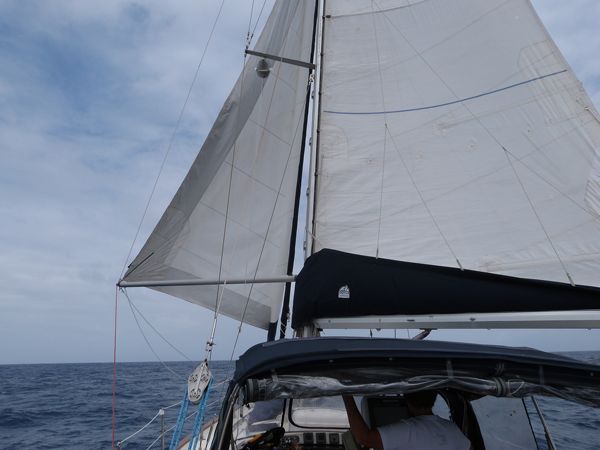
During the
passage, Margie and Vicky made homemade bread which was delicious. The bread needed
a warm place to rise so we put it in the engine room after running the
generator
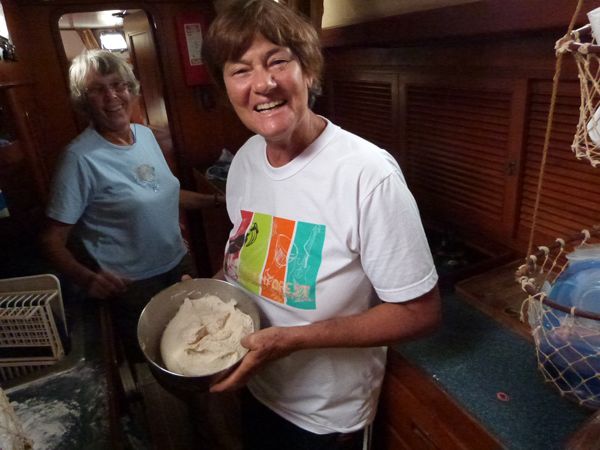
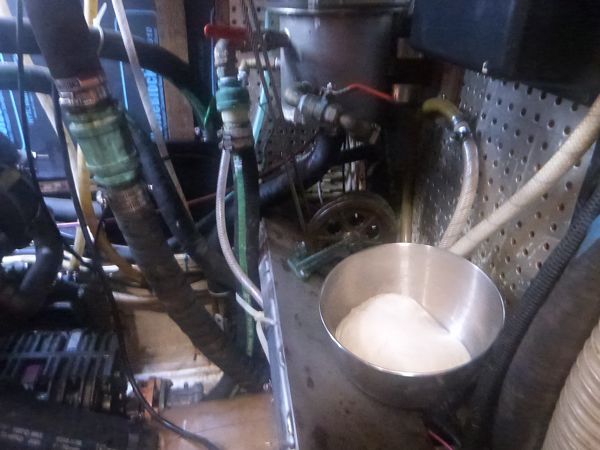
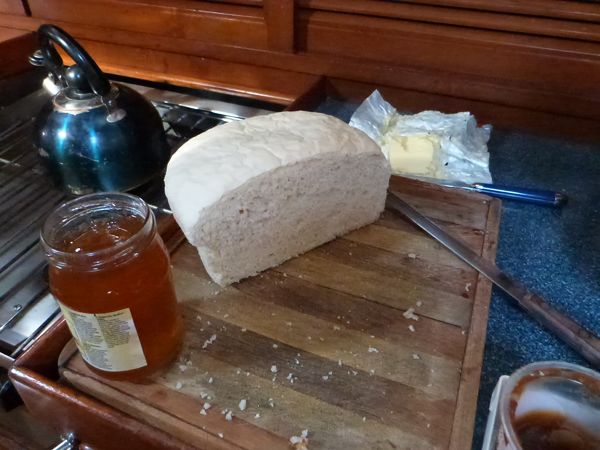
Bob decided
to go fishing and caught the wind vane blades which turned out to be inedible.
He later needed to go up and disengage the fishing line.
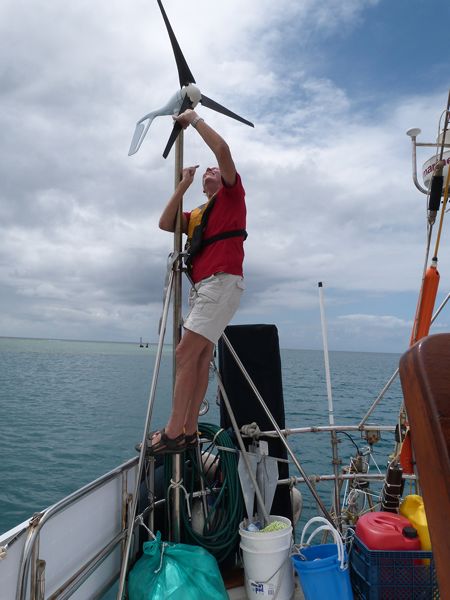
During the 2000
mile passage, we only saw two commercial boats visually and three more on
radar. This is a really deserted stretch
of ocean. It was water, water everywhere…
On a passage
of this length, there are always constant repair jobs. Here is a picture of
Peter getting ready to install a new line for a broken halyard while underway.
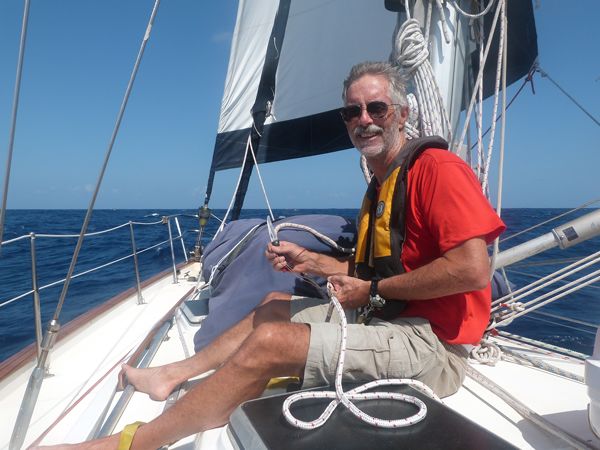
Seen below are shots of sail repairs conducted upon arrival in Rodrigues. We had chaffed lines, ripped sails that needed sewing, broken batten cars, etc.. Peter discovered some relatively serious rigging problems up the
mast that needed attention, so up he went in the bosun’s chair.
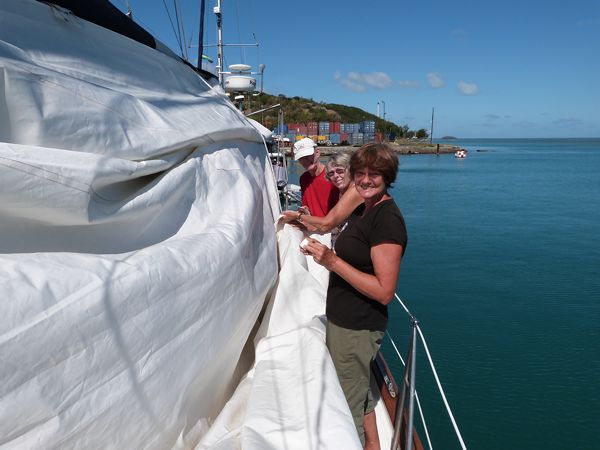
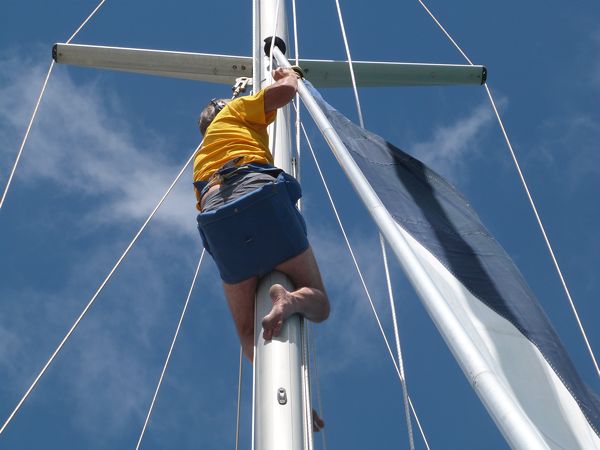
The island
of Rodriques is part of the group known as the Mascarene Islands. It is a territory of Mauritius which lies 569
km to the northeast. Along with Reunion Island which is a department of France
(similar to Martinique), these three islands compose the Mascarenes.
The island
has a population of 38,000 and is approximately 11 miles x 5 miles. Rodriquez is of volcanic origin. It is surrounded by reefs which mark the
edges of volcanic mountaintops. In this picture you can see the reef off shore.
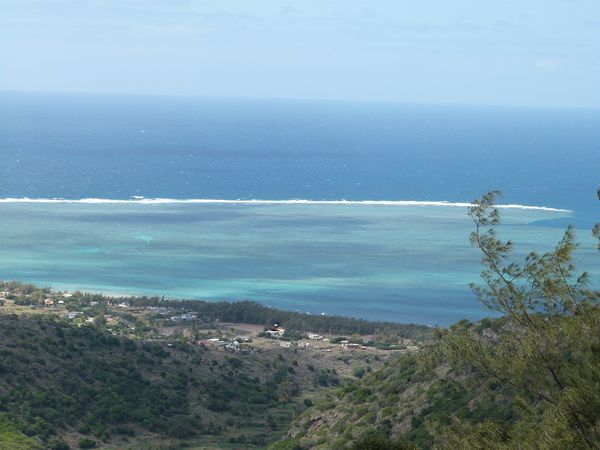
The entry to
Port Mathurin on Rodriques is through gaps in the outer reef and then
up a channel blasted out of solid coral. There is an anchorage big enough for
about a dozen sailboats there but the best spot to be is alongside a concrete
wharf which is long enough to host six yachts.
We arrived the day the supply ship was in port which happens once every
two weeks. So we anchored out for one
night and then got up early the next morning as there was a mad dash to the
wharf once the ship left. Luckily,
Peregrina got a space!
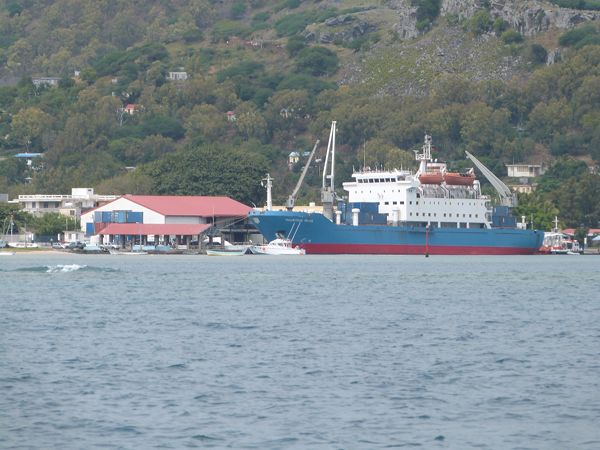
One of the
highlights of our visit to the island was a chance to spend a day with the
giant tortoises at the Francois Leguat Giant Tortoise Reserve. These turtles are
so friendly that when you enter their sanctuary, they actually walk towards you
to get their necks rubbed. There were
over 200,000 of these beautiful creatures on Rodrigues in the 1800’s but in
less than 75 years, settlers and passing sailors killed or captured all of them
and they became extinct. The Francois
Leguat Reserve is introducing species from Madagascar and the Galapagos Islands
back into Rodrigues for future generations to enjoy. We had a marvelous day with them!
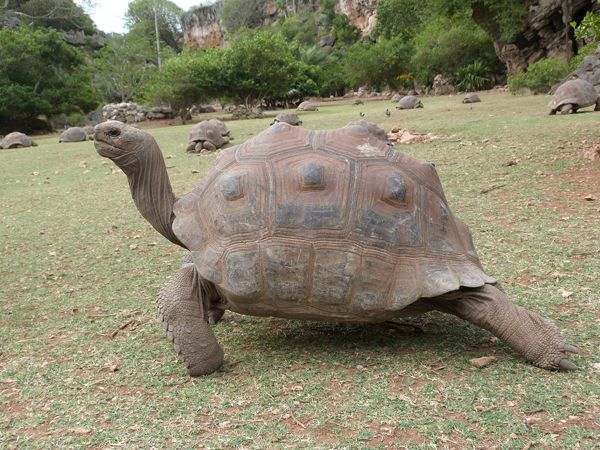
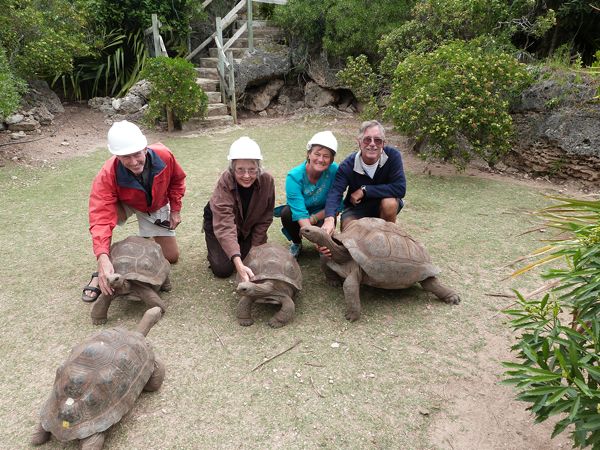
Another
highlight of our trip was a six mile hike along the eastern coast of the island
where there are no roads but a fantastic hiking trail of moderate difficulty
but stupendous reward for your effort.
The trail led us to some of the most beautiful beaches we have seen in our
entire voyage.
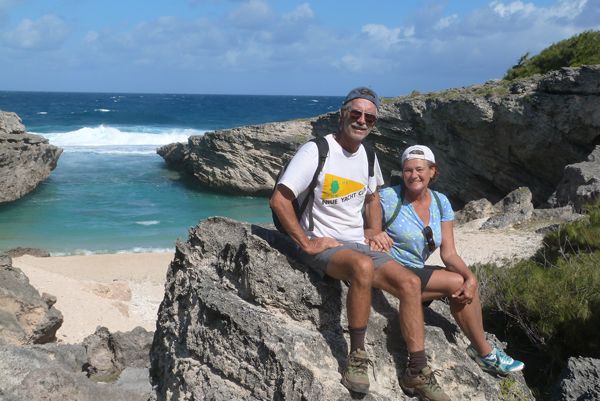
We have
loved Rodriques but it’s time to move on to the island of Mauritius, which is a
short 2 or 3 night passage depending on the weather. We’ll keep you posted in another edition of
Where in the World are Margie and Peter but right now, it’s time to stop
writing, go up on deck and look at the sunset.
